Duke of Albufera
Pronunciation:
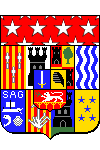
Louis-Gabriel Suchet was the son of silk merchant. He was born on March 2, 1770 in Lyon. He lost his mother when he was three and became an orphan in 1789. He and his brothers took over his father's business and founded the house of Suchet Frères. While he was pursuing an apprenticeship at a commercial firm, he joined the National Guard of the Gaulish Capital in 1791 and quickly rose to the rank of Captain.
For his ardent republicanism and sound education he was elected Lieutenant-Colonel in a battalion of volunteers from Ardèche in September 1793. His military career well and truly began at the Siege of Toulon.
Suchet participated in the repression of royalist agitation in Vaucluse before transferring to the Italian Army where he participated in all the major battles of the first Italian Campaign.
In 1797 he was a chef de brigade (Colonel) before becoming Chief of Staff to Guillaume Brune and then Brigadier General in March 1798. When his management was called into question - he was accused of the misappropriation of public funds - he was required to return to Paris to answer before the Directory which prevented him from leaving with the Egyptian expedition.
When his name was cleared, he returned to his posting in Italy and was promoted to général de division (Major General) in 1799. After the death of Barthélemy-Catherine Joubert at Novi (August 15, 1799), he became second-in-command to Andréa Masséna. He attempted to rescue his commander when he was trapped in Genoa, capturing the city on June 22, 1800 nearly 18 days after the capitulation of the "dear child of victory".
He returned to France after the Peace of Lunéville (1801) and was named Inspector General of the Infantry. He then served in the Grande Armée under Jean Lannes from 1805 to 1806 and then again under Masséna in Poland in 1807. For his bravery at Austerlitz (December 2, 1805) he was named Grand Eagle of the Legion of Honour. He also distinguished himself at the Battles of Jena (October 14, 1806), Pultusk (December 26, 1806), and Ostrolenka (February 16, 1807).
During all these years, though he acted as a perfect courtier and professed an exaggerated loyalty, he did not achieve the distinctions to which he aspired to the point that he sometimes complained that he was regressing rather than progressing in his career. Napoleon I made him a Count in 1808.
The same year, on the road to Spain, Suchet made a detour to marry the wealthy niece of Joseph Bonaparte (by marriage) even though he had never met her.
In April 1809, he was named Governor of Aragon replacing Jean-Andoche Junot. He then conquered part of Catalonia and gradually captured all the strongholds in the country. Lerida fell in May 1810. In June 1811, he captured Tarragone with some difficulty since the Spanish insurgents, though poorly armed and few in number, fought him street by street and house by house. For this he was awarded the title of Marshal. When he captured Valence on January 9, 1812 after an intense bombardment, he became the Duke d'Albufera.
During this long campaign, he displayed a rare tenacity and a cool authority. He was an administrator without equal. He made sure his soldiers wanted for nothing and took a keen interest in their well-being and moral. In exchange for the care he showed for his troops, he imposed strict discipline and tolerated neither looting nor extortion. Even he acknowledged the hefty taxes imposed on the conquered peoples: The needs of the army and the will of the Emperor have obliged me to order and to carry out some things that are difficult to write.
As a result, he occasionally allowed civilians to access the army stores when their crops had been ruined by military operations. This policy led to the close integration of his soldiers with a population that would otherwise have been violently hostile to them. The benefit was immense. He was able to obtain that most valuable commodity in war which is also the most difficult to come by: information. His use of light, mobile, and well-prepared columns that were able to act in isolation and by surprise and his insistence on well-stocked garrisons in the cities with plenty of supplies and munitions were among the measure that explain his unique success among the Marshals who were stationed in Spain.
After the defeat of Vitoria (June 21, 1813), Suchet successfully evacuated the region of Valence and Catalonia while preventing the English from landing. He managed to return with his army to the Eastern Pyrenees. In September, he succeeded Jean-Baptiste Bessières (who had been killed in the battle of Lützen) as Colonel General of the Imperial Guard.
In 1814, he aligned himself with the Bourbons and became a Peer of France. Nevertheless, he returned to Napoléon I during the Hundred Days even though he waited to see if the situation would settle down. He was tasked with protecting Savoy from the Austrians, but he was unable to block the roads to Simplon and Mont-Cernis with the few forces at his disposal. He withdrew to Lyon where he learned of the defeat at Waterloo on June 22.
Despite Suchet's immediate submission to the King, King Louis XVIII relieved him of his command and struck his name from the list of Peers when he returned from Ghent. It was only in 1819 that he regained his rank. Despite his past successes, on-going intrigues in the court prevented him from participating in the French expedition of 1823 to Spain to return the throne to Ferdinand VII.
The Duke of Albufera died on January 3, 1825 in his château of Saint-Joseph in the outskirts of Marseille.
"Marshal Suchet, Duke of Albufera" by Jean-Baptiste Paulin-Guérin (Toulon 1783 - Paris 1855).
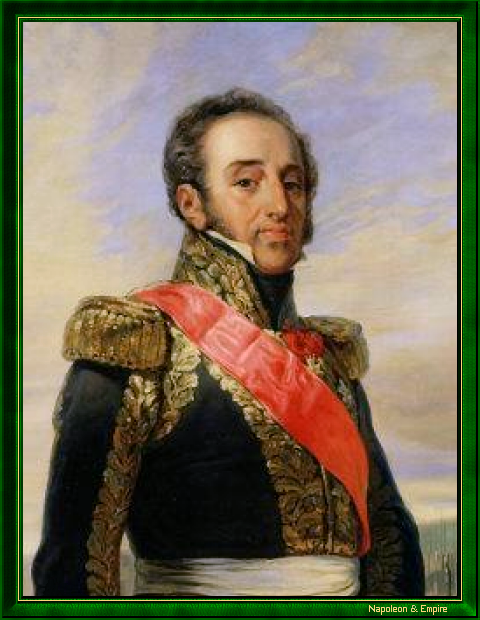
When he had been confronted with the guerilla warfare of Spanish (a type of combat Napoleon hated and ignored), Marshal Suchet was perhaps the only Marshal who understood the need for a political, as well as a military response. His success bears witness to the appropriateness of his approach making him one of the pioneers of anti-guerilla tactics whose strategies may still be studies by the Pentagon.
His magnificent tomb, that includes a bust sculpted by David d'Angers , can be found in Paris in the 39th division of the Père Lachaise Cemetery.
Louis-Gabriel Suchet possessed a refined spirit and remarkable taste thanks to his bourgeois education. This allowed him to easily attend the Salons (in the same way as Louis-Alexandre Berthier, who was educated at the court of Versailles) as was reported by Charles-Maurice de Talleyrand-Périgord after the death of the Duke d'Albufera. Stendhal offered him a copy of his History of Italian Painting in 1817 and Jomini asked for his help with the writing of some of his works.
Napoleon, who apparently did not at first appreciate Suchet, held him in very high esteem for his abilities. In his Memorial of Sainte-Hélène he wrote, Suchet was one of the people that disposed of a great spirit and a great character. If I had had Suchet instead of Grouchy, I would not have lost at Waterloo.
Other portraits
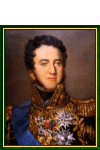
Enlarge
"Marshal Suchet, Duke of Albufera" painted in 1834 by Adélaïde (or Adèle) Gault (?-?).
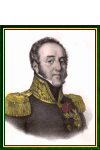
Enlarge
"Marshal Suchet, Duke of Albufera". Engraving of nineteenth century.
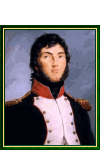
Enlarge
"Louis-Gabriel Suchet in uniform of Lieutenant Colonel in 1792" by Vincent Nicolas Raverat (Moutiers-Saint-Jean 1801 - Paris 1865).
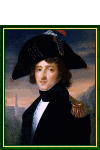
Enlarge
"Louis Gabriel Suchet, Battalion Chief in 1795" by Gilles Marie Joseph Albrier (a.k.a. Joseph Albrier, Paris 1791 - Paris 1863).